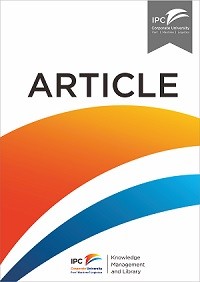Article
Theoretical perspectives on information sharing in supply chains
The purpose of this paper is to explore what theoretical lenses have been used to analyze and understand information sharing in supply chains. The paper elaborates on the predominant theories and discusses how they can be integrated to research different aspects of information sharing. Design/methodology/approach – The paper carried out a structured literature review by using a combination of selected keywords to search for peer-reviewed articles in ten journals. Findings – The findings suggest that four out of ten reviewed articles explicitly apply one or more theoretical lenses. The predominant theories used include transaction cost economics, contingency theory, resource-based view, resource dependency theory and relational governance theories such as the relational view and social exchange theory. Research limitations/implications – These theories can be applied to analyze different aspects of information sharing. By using the theories in a complementary way, it is possible to increase our understanding of information sharing between companies related to: why and what information to share with whom, how to share and the impact of antecedents, barriers and drivers. Practical implications – The results of the paper highlight the importance of tailoring information sharing structures and mechanisms to the context of the transaction and the business relationship.
Originality/value – This paper addresses how theoretical perspectives inform empirical research on information sharing in supply chains. It puts forward an integrative conceptual framework based on cross-disciplinary theories and makes specific suggestions for future empirical research in this area.
Ketersediaan
Informasi Detail
- Judul Seri
-
Supply Chain Management: An International Journal
- No. Panggil
-
ATC LO KEM t
- Penerbit
- Sweden : Emerald Insight., 2014
- Deskripsi Fisik
-
19 p.
- Bahasa
-
English
- ISBN/ISSN
-
1359-8546
- Klasifikasi
-
LO
- Tipe Isi
-
-
- Tipe Media
-
-
- Tipe Pembawa
-
online resource
- Edisi
-
19/5/6 (2014) 609–625
- Subjek
- Info Detail Spesifik
-
-
- Pernyataan Tanggungjawab
-
Joakim Kembro
Versi lain/terkait
Lampiran Berkas
Komentar
Anda harus masuk sebelum memberikan komentar

 Karya Umum
Karya Umum  Filsafat
Filsafat  Agama
Agama  Ilmu-ilmu Sosial
Ilmu-ilmu Sosial  Bahasa
Bahasa  Ilmu-ilmu Murni
Ilmu-ilmu Murni  Ilmu-ilmu Terapan
Ilmu-ilmu Terapan  Kesenian, Hiburan, dan Olahraga
Kesenian, Hiburan, dan Olahraga  Kesusastraan
Kesusastraan  Geografi dan Sejarah
Geografi dan Sejarah